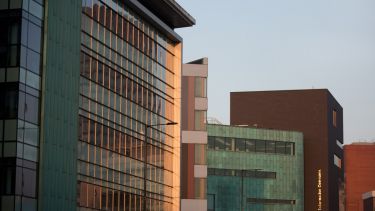Modern Languages Teaching Centre
The School of Languages, Arts and Societies is home to the Modern Languages Teaching Centre (MLTC). We have a wide choice of languages for you to study at various levels, whether you're a student, staff or member of the public.

Our languages
We offer a diverse range of languages for those wishing to develop foreign language skills. This could be learning a new language from scratch, or continuing to build on a language.
Choose a languageLanguages for All

Study a language alongside your degree
Languages for All is a university-wide scheme for all University of Sheffield students and members of the public wishing to develop foreign language skills.
Choose a language hereContact us
Address
University of Sheffield
Jessop West Building
1st floor, office 111.
Sheffield
S3 7RD


